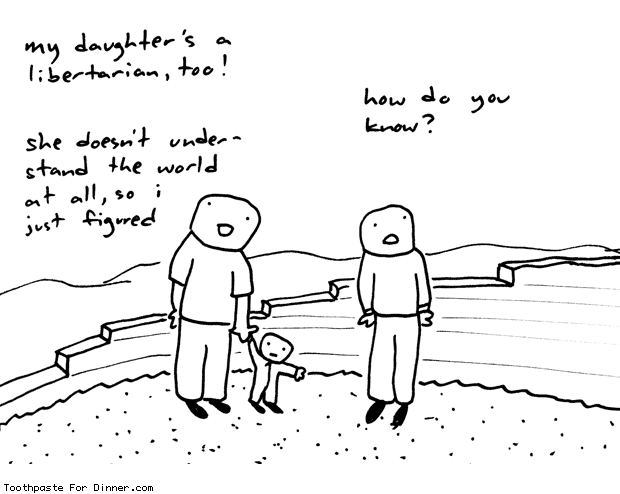Tonight Heather & I attended a forum on campus entitled, "Can a Good Christian be a Good Capitalist?" The panelists included someone from the business school, an economics professor, someone from Durham's renowned
Self-Help Credit Union, and a Christian theologian (Prof. Hauerwas).
The responses to the question were about what you'd expect: different types of qualified affirmatives, except for Dr. Hauerwas, who said that the answer could only be Yes if you made a pretty sophisticated argument involving the contention that capitalism forces us into connection with and reliance on others. Heather helped me to understand more about what the economist was saying, which seemed to entail a belief that the capitalist system is morally neutral, and that it's a question of the "health of civil society" -- or, in Stanley-speak, the kinds of people we have formed -- that determines the extent to which it's possible for a person to be a good capitalist and a good Christian.
What was most novel and intriguing to me was something said by the economist, Thomas Nechyba (who, incidentally, was my professor nine years ago for introductory microeconomics). He said that in economics courses, they postulate "Economic Man": the free individual who pursues his self-interest above all else. However, Nechyba says that the idea is NOT that this Economic Man is the ideal hero in the economist's worldview. Rather, it's just a
model that seems to describe very well how we actually behave in markets. His point, I think, was that the system doesn't
require you to be a purely self-interested automaton in order for things to work smoothly; there is moral agency independent of the system. The nuance that Nechyba was trying to introduce made me think back to how I characterized the "rational, self-interested actor" in a sermon
last year.
What he didn't really address was the fact that, in general, making moral decisions (e.g. using sustainably-grown materials in your business) can put you at a competitive disadvantage that will run you out of business; you'd be a good Christian, but a bad capitalist. Or, at least, a poor capitalist.
Which might bring us to a more pithy question: Can a good capitalist be a poor capitalist?











